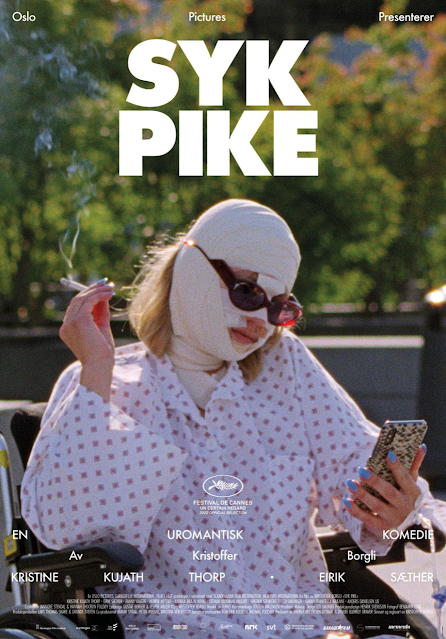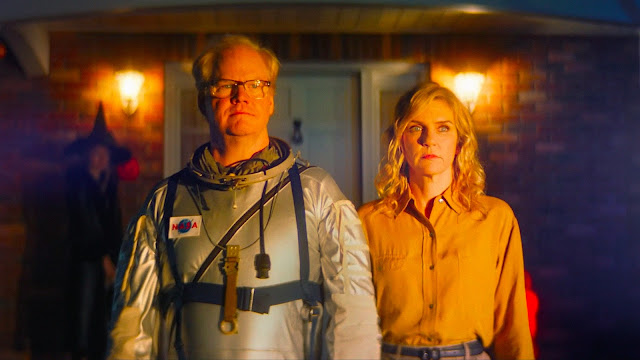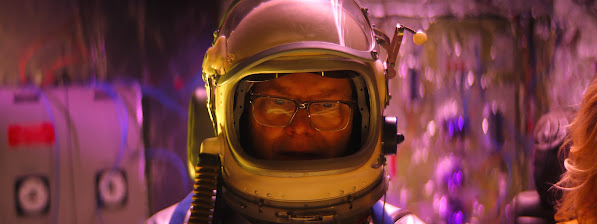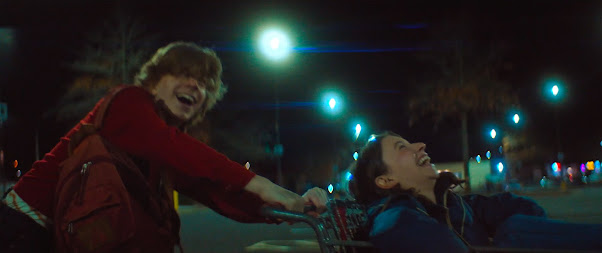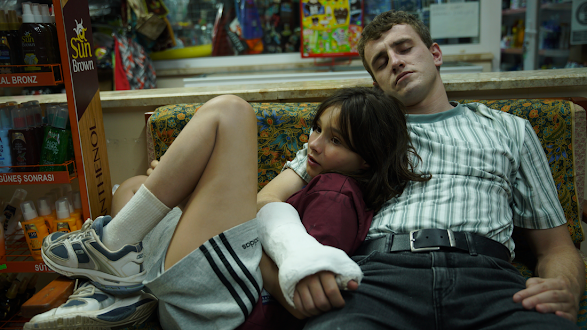Plunged into an existential dilemma after she witnesses a woman mauled by a dog outside the cafe where she works, Signe (Thorp) finds herself indulging in the attention she suddenly receives from her friends, making sure she's okay after such a traumatic experience. But when the spotlight shifts to her artist boyfriend Thomas (Eirik Sæther) - a kleptomaniac whose work consists of furniture stolen from public buildings - Signe finds a way to regain the sympathy of her friends by buying a supply of dangerous pills on the black market that count ghastly skin growths among their side effects. Arriving hot on the heels of The Worst Person in the World and last year's Ninjababy (which also starred Kristine Kujath Thorp), Sick of Myself is the latest example of Norwegian cinema's exploration of narcissism.
Once Signe ingests the dangerous pills - increasing the dose when it doesn't have the immediately gratifying effect she desires - and finds herself hospitalised, the film's darkly comic tone goes into overdrive, with Signe, bandaged head to toe, in orgasmic pleasure at the thought of queues lining up at her funeral to mourn her. A symptom of her narcissism, she has flights of fancy - some comedic, some horrific - that either way see the focus put on her and taken away from her equally self-indulgent boyfriend, just as his career as an artist/provocateur is on the rise. It's when the bandages come off that Signe's plan really comes together. Lying about the pills and claiming her appearance is the result of an undiagnosable illness, the patterns the lesions form on her face are oddly beautiful, turning her into something of an unconventional beauty icon, with photo shoots and modelling contracts on the horizon. Everything Signe could have wished for, but not without consequences.
Written and directed by Kristoffer Borgli, Sick of Myself is an entertainingly cynical comedy that dissects the idea of celebrity and performative sympathy in the modern social media age. Is Signe a bad person for wanting to indulge in her fifteen minutes of fame, and exploit the attention she's given due to her physical appearance? In short, yes. But, Sick of Myself goes some way to show she's not the only one, with the industry behind this exploitation using her "unconventional" look to sell a fashion line also coming under fire. It's bitingly funny, equally cruel, pushing us as an audience to ask if Signe is someone who should be sympathised with or laughed at for the lengths she feels she has to go to to be relevant. As a pretty young blonde woman, superficially she could have it all and has traditional society on her side. Her only failing is her personality - flaws, warts and all. But she can't bear to be average and is prepared to sacrifice her health to give her an edge.
As the shallow Signe, Kristine Kujath Thorp's performance is strong enough to let the audience switch between empathy and disgust as the inevitable monkey's paw aspects of the plot kicks in. Also great in 2021's Ninjababy as a reluctantly pregnant young woman (if you haven't seen that film, you'll want to after seeing her performance here), Thorp is an absolute star on the rise. Stomach churning make up effects or not, you can't take your eyes off her for a second.
After The Worst Person in the World and Ninjababy looked at modern women's relationships to love, men, and having children, Sick of Myself is a refreshingly acerbic against their more sombre tones, but is equally successful at probing these topics on a more fantastical stage than its Norwegian cinema counterparts. At once a critique of the fashion & beauty industry and celebrity status hunters, and a nauseating real world body horror, Sick of Myself is the most grotesque black comedy since Death Becomes Her, delivering a timely warning to the influencer generation of the perils of grasping for fame.
Verdict
4/5
Sick of Myself was part of this year's London Film Festival. It will be released in the UK early next year.

